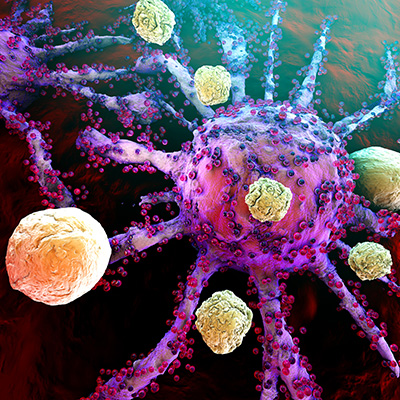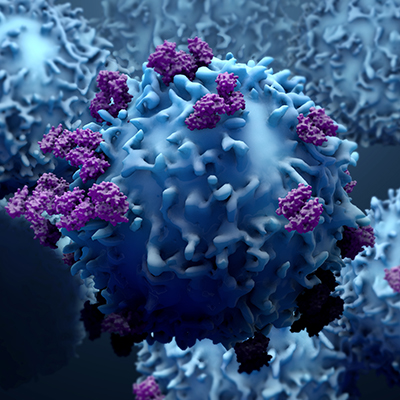November 5, 2020 -- Large-scale profiling of protein changes in response to drug treatment in cancer cell lines has been demonstrated as a powerful tool to predict drug sensitivity, understand drug resistance, and identify optimal drug combinations. The analysis was published in Cancer Cell on November 5.
Perturbation biology measures how a system such as cancer cells responds to various stimuli. Perturbation experiments offer a powerful approach to providing data that can lead to a deeper understanding of the mechanisms underlying cell survival under stress.
Further, information across different cancer types can help researchers gain a systems-level understanding of cancer mechanisms and phenotypes. However, large-scale resources for analysis and integration of protein responses of perturbed cancer cell lines have not been established.
"We've seen a number of perturbation studies that look at gene expression changes following drug treatments or CRISPR-mediated changes, but there is a significant gap in terms of proteomic profiling," said Han Liang, PhD, senior author and professor of bioinformatics and computational biology at the University of Texas MD Anderson Cancer Center, in a statement. "We hoped to fill that gap by profiling changes in major therapeutic target proteins, which provides a lot of insight in terms of drug resistance and designing drug combinations."
Scientists at MD Anderson generated and compiled a large compendium of perturbed protein expression profiles of cancer cell lines in response to a diverse array of clinically relevant drugs using reverse-phase protein arrays (RPPAs).
RPPA is a quantitative antibody-based approach used to assess protein markers in a large number of samples in a high-throughput, cost-effective, and sensitive manner. The researchers used this tool to quantify protein expression levels of large patient cohorts (the Cancer Genome Atlas program) and cancer cell lines (the Cell Lines Project and the Cancer Cell Line Encyclopedia).
The researchers compiled a compendium of RPPA profiles for approximately 210 protein markers of 15,492 samples (11,884 drug-treated samples and 3,608 control samples). The study evaluated perturbations of 168 compounds in 319 commonly used, well-characterized cell lines from many cancer types, including breast, ovarian, uterine, skin, prostate, and hematologic cancers. The data was highly reproducible and verified by multiple independent pathways including mass spectrometry and L1000 RNA sequencing platforms.
The data from RPPA-based protein responses was able to capture important phenotypic effects of drug treatments and uncover molecular mechanisms underlying drug sensitivity, suggesting that there was activation or suppression of specific signaling pathways following treatment with a given drug. Further, data from pre- and post-treatment showed that adaptive activation of certain pathways may lead to acquired resistance to drugs, which may be useful in predicting sensitivity to additional pharmaceuticals.
The researchers also developed a protein-drug connectivity map based on the RPPA data. The map provides visualization of protein-drug connections based on whether a drug treatment caused a significant change in a protein, and drug-drug connections based on whether two drugs caused similar protein responses.
For example, the functional proteomic changes determined by RPPA validated the synergistic activity of poly (adenosine diphosphate-ribose) polymerase (PARP) inhibitors and inhibition of the phosphoinositide 3-kinase (PI3K) pathway, methyl ethyl ketone (MEK), ataxia telangiectasia and rad3-related protein (ATR), and nuclear kinase WEE1 inhibitors in preclinical and clinical studies.
The evaluation of these complex pathway-protein-level relationships allowed the researchers to predict drug combinations to point to possible effective drug combinations. The researchers identified 150 drug combinations for nine specific drugs with this analysis.
An interactive portal called "Cancer Perturbed Proteomics Atlas," is available that will allow biomedical researchers to explore, visualize, and analyze the data from the study. The researchers anticipate that the bioinformatics tool will lead to translation of large-scale perturbed protein data into biological knowledge and clinical utility.
Although the study includes data from only select cancers, the researchers hope to continue adding to the dataset in the future. The team anticipates that adaptive proteomic profiling at baseline and following treatment may be a useful clinical trial tool to better follow patient treatment responses and to optimize therapeutic strategies.
Do you have a unique perspective on your research related to cancer biology or drug development? Contact the editor today to learn more.
Copyright © 2020 scienceboard.net









